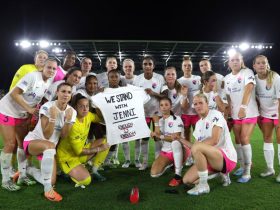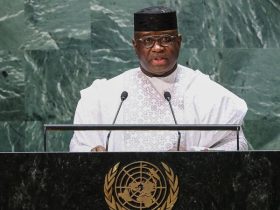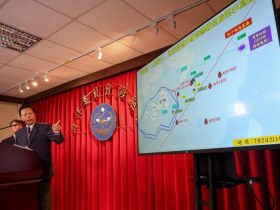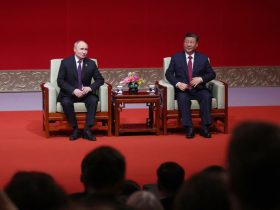North Korea may be known as the hermit kingdom, but the isolated nation could be edging toward opening its borders to small numbers of tourists for the first time since the pandemic.
In late August, flights on North Korea’s national carrier Air Koryo resumed services between the capital Pyongyang and Beijing, China, and Vladivostok, Russia, for the first time since January 2020, signaling that a wider reopening may be in the pipeline.
However, getting information from North Korean officials is a challenge, leading tour companies to speculate on when they will be permitted to bring travelers into the country again.
Simon Cockerell is the general manager of Koryo Tours, a China-based company that specializes in group tourist trips to North Korea. When North Korea slammed its already tight borders closed in 2020, he was one of many travel industry professionals left out in the proverbial cold.
“There’s no Ministry of Tourism,” Cockerell explains. “So there’s no high-level government officers or anything like that involved in tourism.” As a result, information is spotty, and the best he and his colleagues can do is wait and wonder.
“Imagine a company with no access to its market with no customers and no income for three and a half years. That’s how difficult it’s been,” he says.
Koryo Group also operates tours to other Asian destinations like Kazakhstan and Mongolia, allowing the company to stay afloat, but not at its previous level.
One of Cockerell’s business concerns, he says, is that a lack of search engine interest in North Korea trips could hurt his website’s visibility on Google.
While Cockerell believes the resumption of some international flights is a promising sign, he says that even if tour companies like his are allowed to restart their trips, there’s no telling whether vaccines, quarantines and other Covid-era restrictions would be on the table.
Tourism to North Korea was permitted before the pandemic, but heavily restricted.
The American angle
Even if leisure tourism in North Korea becomes possible again, there’s one major demographic that wouldn’t be included in those tour groups – Americans.
In 2017, the United States banned its passport holders from traveling to North Korea and has renewed this ban through at least 2024.
In a government memo issued at the time, the US urged potential travelers to consider that money from tourism in North Korea goes to the Kim regime and its practices.
“It is entirely possible that money spent by tourists in the DPRK goes to fund (weapons programs). We would urge all travelers, before traveling to the DPRK, to consider what they might be supporting,” said the memo.
The 2017 ban on American travel to North Korea came shortly after the death of Otto Warmbier, a recent college graduate from Ohio who participated in a Young Pioneer Tours group trip to North Korea.
Warmbier was detained in North Korea in 2016 for allegedly stealing a propaganda poster and held for 17 months. He was released back to the United States in June 2017 in a vegetative state and died not long after. He was 22 years old.
Individual tourists are not permitted to enter North Korea. Before the pandemic, the majority of visitors signed up with a company like Koryo Tours and visited in a group led by government-assigned minders and tour guides. The places they visited were strictly chosen and controlled.
Most of these tour groups traveled by air from Beijing, which means that would-be visitors had to also obtain a Chinese travel visa.
North Koreans permitted to return home
While many countries with strict Covid-era border controls permitted their citizens to return home from elsewhere, North Korea was a rare exception.
As a result, many North Koreans –- such as the many restaurant managers, construction workers, and others sent to foreign countries to make money for the regime –- were essentially marooned overseas.
However, that policy finally changed this week. On August 27, the North Korean government said it would allow its citizens living overseas to return home – but will still require them to do a one-week quarantine upon arrival.






